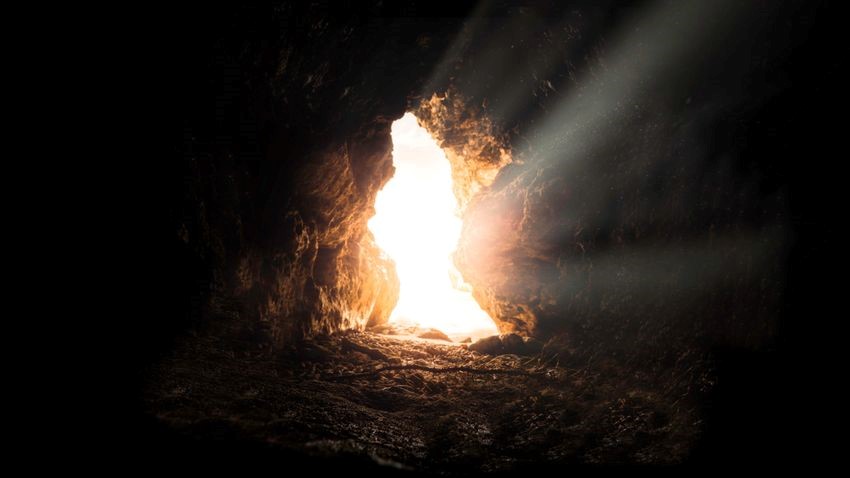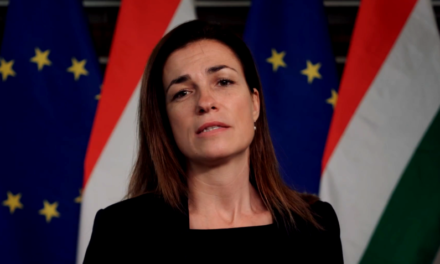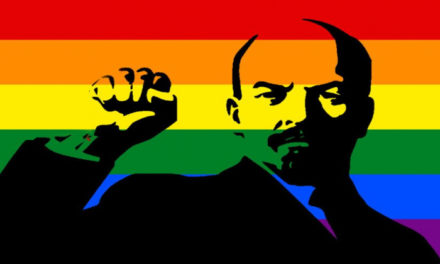Christianity is primarily not about some kind of syrupy, hippie-style universal love, but about the salvation of souls.
What does the Easter "Christ event" bear witness to - as the theologians put it in a slightly modified way from the 1960s - i.e. the death on the cross and resurrection of Christ, the second divine person incarnated and made human? About the fact that this world is God's creation, and that God was incarnated among us as the second Adam to redeem the sin of the first Adam:
God so loved the world that he gave his son for it.
For some time, it has been customary to derive the political state of man from natural states. It all started with Thomas Hobbes, who said that in the state of nature, "the war of all against all" prevailed, bickering, infinitely depraved people would only give up their state for the sake of predictable peace and security for the sake of a public power, which must therefore be absolute. Rousseau thought exactly the opposite: the state of nature was not hell, but Edenic, private property and society corrupted the inherently good man, the solution is popular sovereignty, in which individual freedom is united with the public will. There were other solutions, such as John Locke's.
What can a Christian say to all this? That neither solution won, the natural state was the Garden of Eden, paradise, but it cannot be deduced from that what kind of political system is needed, since we were expelled from it due to the Fall (plucking the fruit from the tree of the knowledge of good and evil), and man's nature it's broken. In Hobbes's or Rousseau's state of nature, man is not a social but a solitary being. According to Christianity, man is an inherently social being. But our historical state, from which we must start, is the state after the expulsion.
Man is a fallible, intermediate being, capable of good and evil, but this does not mean that evil can be eradicated.
As long as the world exists, there will be poverty, misery, war, conflict, suffering, political power, friction between freedom and order, individual and community. That means there will be history, because history comes from the fact that the countdown started with the expulsion, and there are conflicts.
According to Dante, in order for Christ to really atone for all the sins of Adam and humanity with his death on the cross, he had to be condemned by someone who has jurisdiction over the whole world - and this is how the emperor was thought at the time, and Pontius Pilatus was the emperor's vicar, that is, his local representative.
But we don't have to be cynical or naively optimistic.
We can love our valley of lamentation with its pleasant climate and offering an oasis - we Hungarians call the Carpathian Basin - the world, people and life are valuable.
Absolutely great value. However, we should not expect salvation from politics. Aristotle designates eudaimonia, earthly completeness, happiness as the goal of the "zoon politikon", the "political animal", i.e. man existing as a social being and politics (the polis), but according to Christianity, this is only a partial truth, a partial interest. You have to see beyond this horizon, because you can hate or love politics, withdraw from it or work in it, analyze it from the outside, the ultimate goal is the salvation of souls. Christianity is not primarily about some kind of syrupy, hippie-style universal love, but about the salvation of souls, for which Christ died on the cross of the Romans on Good Friday.
And his love poured out all over the world - across space and time, there and back. Christ's self-sacrifice colored the world like a drop of blood on water.
Christ overcomes, wins, is executed and resurrects.
The Easter liturgy states:
"Christus vincit, Christus regnat, Christus imperat" - Christ conquers, Christ reigns, Christ commands.
Featured image: Unsplash













